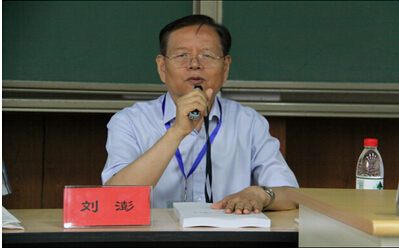
A scholar who has been pushing legislation on religion publicized his draft proposal for the first time on Thursday at an annual religion and social science conference at the Renmin University of China.
Liu Peng, founder of the Pushi Institute for Social Sciences, an independent think tank that focuses on religion in China, wrote the draft legislation last year and presented the first part at the conference.
The draft defines religious freedom and property, regulates religious groups and activities, and calls for the separation of government and religious affairs.
China currently has no religious affairs-related laws, only a regulation at the national level in 2005.
Regulatory deficiencies have created a problem whereby courts cannot hear disputes that touch on religion, especially those between governments and religious groups, Liu told the Global Times. When these issues need to be addressed, governments usually resolve them by issuing administrative rulings.
"For example, if a town or district government wants to tear down a temple and the people in it don't want to, there isn't a law to settle the dispute," he said. On the other hand, the government can't regulate religious affairs when problems arise either.
"A proposal on religious affairs can [aid the] push for implementation of policies related to religious freedom," Yan Kejia, director of the Institute of Religious Studies at the Shanghai Academy of Social Sciences, told the Global Times.
However, there has been much discussion on the difficulty of enacting such a law.
Liu Guopeng, a research fellow at the World Religion Institute of the Chinese Academy of Social Sciences, said at a previous conference at the Unirule Institute of Economics that China is not ready for law on religious affairs as most people have no clear idea of what separation of government and religious affairs means to them.
"For example, can clerics serve in government posts? Many of our monks and bishops have high political positions right now. If we follow a strict separation, can they go on with their jobs?" he said.
"Right now the Chinese government sees religious issue as a political one and solves it with political means. There isn't much discussion on changing the mentality," Liu said, adding that he hopes that through grass-roots discussions, this attitude will start to change.

本文转载自:Global Times 2014-7-18, http://www.globaltimes.cn/content/871216.shtml,原题“Scholar releases draft legislation on religion ”.

 京公网安备 11010802036807号 技术支持:北京麒麟新媒网络科技公司
京公网安备 11010802036807号 技术支持:北京麒麟新媒网络科技公司
 京公网安备 11010802036807号 技术支持:北京麒麟新媒网络科技公司
京公网安备 11010802036807号 技术支持:北京麒麟新媒网络科技公司